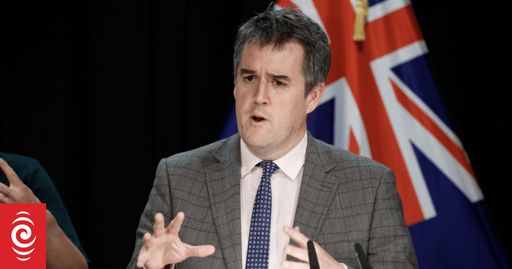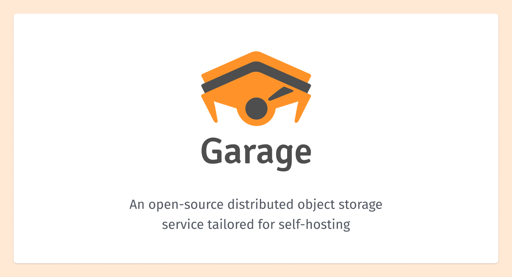- 13 Posts
- 12 Comments

 7·8 days ago
7·8 days agoThe question was:
Do you strongly agree, agree, disagree, or strongly disagree with the following statements
The statements:
- “You have friends with political views different from your own.”
- “All immigrants who came to New Zealand illegally should be deported.”
- “New Zealanders may have to resort to violence in order to get the country back on track.”
Based on 1,000 responses, we’re 14% vs America’s 30%.

 11·9 days ago
11·9 days ago“If there weren’t unions: people would just have to individually put up with our shit”

 1·11 days ago
1·11 days ago⬇ AI Summary of the original 174 page report 🤖
spoiler
The New Zealand Drug Foundation’s 2025 report, Safer Drug Laws for Aotearoa New Zealand: Evidence to Inform Regulatory Change, is a major evidence-based review arguing that New Zealand’s 50-year-old Misuse of Drugs Act 1975 (MoDA) has failed to achieve its goals and should be replaced with a health-centred, evidence-driven legal framework.
Core Thesis
The report asserts that criminalisation has not reduced drug use but has deepened harm—particularly for Māori—while blocking access to effective health interventions. It calls for a new regulatory model that treats drug use primarily as a social and health issue, not a criminal one.
Historical & Policy Context
- The MoDA, influenced by mid-20th-century UN conventions and US policy, became law in 1975.
- It enshrined prohibitionist drug control and criminal penalties that persist despite global shifts toward harm reduction.
- A 2011 Law Commission review recommended repealing MoDA and creating a new health-led Act, but its proposals were largely ignored.
- Limited reforms (like 2019’s police-discretion amendment and 2021’s legalisation of drug checking) show isolated progress, not systemic change.
Key Evidence of Failure
- Rising drug harms: fatal overdoses have surged to roughly three per week (2024), mainly from opioids and adulterated synthetic substances.
- Drug use increasing: wastewater data show record methamphetamine, MDMA, and cocaine use.
- Prices falling: meth and heroin prices have dropped dramatically since 2002, indicating abundant supply despite strict laws.
- Māori inequity: Māori make up over 50 % of drug-related imprisonments and experience double the overdose mortality rate of non-Māori.
- Treatment gaps: more than 350 000 adults have unmet addiction-treatment needs.
- Criminalisation costs: tens of thousands of people bear lifelong convictions that limit employment and wellbeing.
Health & Social Consequences
- Hospitalisations for drug poisoning exceed 500 per year, and stimulant-related cases have grown six-fold since the mid-1990s.
- Over 1,200 overdose deaths occurred between 2016–2024.
- Substance dependence strongly correlates with long-term benefit receipt and poverty.
- Drug harm rankings show alcohol as the most damaging substance overall—worse than most illegal drugs.
Public and Expert Support for Reform
- 2022 polling: 68 % of New Zealanders support rewriting MoDA for a health-based approach.
- UN and global health experts now widely endorse decriminalisation and regulated supply to improve human-rights outcomes.
- Coroners, the Law Commission, and the Human Rights Council have all urged review of NZ’s outdated laws.
Proposed Path Forward
The Foundation recommends:
- Repeal and replace MoDA with a new Act administered by the Ministry of Health.
- Decriminalise personal possession and use, redirecting police and courts toward diversion, education, and treatment.
- Establish a licensing framework to regulate lower-risk substances and enable harm-reduction services (e.g., drug checking, supervised consumption).
- Embed Te Tiriti o Waitangi principles to ensure Māori leadership and equity in policy and service design.
- Create an independent, evidence-based authority to regulate substances and adapt swiftly to emerging drugs.
Conclusion
The report paints a stark picture: Aotearoa’s drug laws have created harm rather than prevented it. After five decades of prohibition, the Foundation argues that a shift toward regulation, public-health interventions, and Māori-led solutions is the only way to make drug laws “safer for all New Zealanders.”

 2·23 days ago
2·23 days agoIsn’t debt the alternative to rates rises?
Yes, and: Elected members seem to treat them the same; which is why I keep conflating them in my posts.
Popper wrote “The Open Society and Its Enemies (1945)” while at University of Canterbury:
https://en.wikipedia.org/wiki/The_Open_Society_and_Its_Enemies
This book came to mind when I wrote “… if regular people activate and push for the right things.”

 2·23 days ago
2·23 days agoI think you are right to question water. The Three Waters thing got needlessly politicised. In the future, we’ll see more shared infrastructure and more “shared blueprints” for how to do things as we go forward. I don’t agree with the current central government’s austerity (they recommended shuttering all regional councils) but I do think that there is a lot of overlap in services. It’s pretty amazing how much autonomy the councils have, but one problem with that autonomy is that many of them reinvent the wheel.
Organisations, like LGNZ which you linked to, are already working to streamline things and provide economies of scale to local councils.
The problem with debt is that it is not used like LGNZ described. It is used to shift the burden down to the next batch of elected officials and to our children. This is done without enough public consultation. My view is that there isn’t enough long-term accountability, and we need some sort of meaningful cap on rates rises; with exceptions for emergencies of course. Anything above and beyond that budget should have to go for a referendum: e.g. “Let’s take on debt to build a sports field!” should be voted on by constituents.
That would require increased engagement in local government which has been in serious decline as documented by numerous inquiries over the last 5 to 10 years.
It’s a wicked problem, but it’s not insurmountable if regular people activate and push for the right things.
Have you read any Karl Popper?

 2·28 days ago
2·28 days agoI generally agree on more services is better. I think we’re in a bit of trouble though. There doesn’t seem to be a universal method of determining rates. AFAICT the councils spend until they need to raise rates, then people complain, and then (sometimes) it’s too late:
“Council debt in New Zealand is very high compared with most other subnational government systems around the world,” he says. “This is double, or sometimes triple, the equivalent debt ratio in comparable municipal systems in countries like Finland, Sweden and Switzerland.”
This “high and rising debt burden” was a common factor behind S&P’s decision to downgrade 18 councils in March 2025, plus a few other downgrades over the past 18 months.
Some councils are bumping up against their self-imposed debt limits. This may constrain their ability to invest in infrastructure for the future or to respond to an unanticipated shock.
But self-imposed debt limits can ultimately be amended by councillors. A greater concern is the debt ceilings that arise from Local Government Funding Agency covenants. These are ‘hard’ limits because the lender may cut off financing or seek accelerated repayment from councils that breach them.
Foo isn’t surprised that total debt is set to tick over $40 billion in 2026. He says councils are still borrowing heavily, largely to catch up on the nationwide infrastructure deficit, in an environment where there is political pressure to rein in rates increases.
From: https://newsroom.co.nz/2025/09/17/newsroom-candidates-survey-alarm-as-councils-breach-debt-ceilings/
There are more stories:
- https://thespinoff.co.nz/the-bulletin/23-09-2025/the-rates-battle-continues-as-council-debt-rises
- https://www.thepress.co.nz/nz-news/360776201/new-council-benchmarking-figures-show-high-debt-levels
And government sources:

 3·28 days ago
3·28 days agoYeah, it’s a bit of a chicken-and-egg problem. If it’s nice to ride a bicycle then people ride bicycles. There are selfish and vocal minorities on either side. The lycra-wearing “activist” cyclist riding two abreast; and the staunch car advocate that sees cars as integral to the economy. Our culture has been so car-based for so long it will take a while for the shift to happen. The research is pretty clear.
For nice-to-haves: I’d be happy to see rates rises pegged to wages; so councils can only raise rates in line with wage growth. It’s a bit simplistic and reductive but if there aren’t meaningful limits then short term political decisions will always win out over long-term financial responsibility.
Creating a nice-to-have budget and then letting constituents vote on how that budget is spent is one way to increase engagement.
Signed - The self-proclaimed best armchair political scientist (Ha!)

 1·2 months ago
1·2 months agoIt’s an interesting distinction you bring up. What is our goal? Do we want to ameliorate the plight of the poor with a fuel tax or RUCs? If that was the goal wouldn’t a tax based on the age or price of the vehicle be more effective?
Personally, I was heavy vehicles and gas guzzling vehicle to be charge more because they:
- put more wear of the roads
- requie us to import more fossil fuels

 3·3 months ago
3·3 months agoIt’s mildly annoying to have to remember to go buy them and the slightly unnerving when you realise you’ve gone over. I’ve never got pulled up on being over and I was unwhittingly driving around for ~3 months that way.
In rural towns I’d say enforcement is passive in that they mainly rely on vehicle sales and other events to trigger re-ups. It is weird how many diesels have broken ODOs compared to petrol cars. 🤔

 3·3 months ago
3·3 months agoWeekend trips would contribute to the velocity of money in the economy. It’s a bit hidden in your message. Are you saying we should:
- Tax the things that are bad for the economy
- Incentivise the things that are good for the economy
Are you also saying that this change would:
- Disconnect incentives from fuel economy / vehicle efficiency
- Unfairly punish people that made choices under the previous rules
- Remove a tax from “something bad” for our economy (importing petrol)
- Add a tax for “something good” for the economy (travel/shipping/deliveries)
I don’t want to put words in your mouth. Am I reading too much into your comment? 🙂

 3·3 months ago
3·3 months agoI admire your exceptional commitment to such a controversial bar.




If you don’t see the problem you might have two classes of enemies now 😂